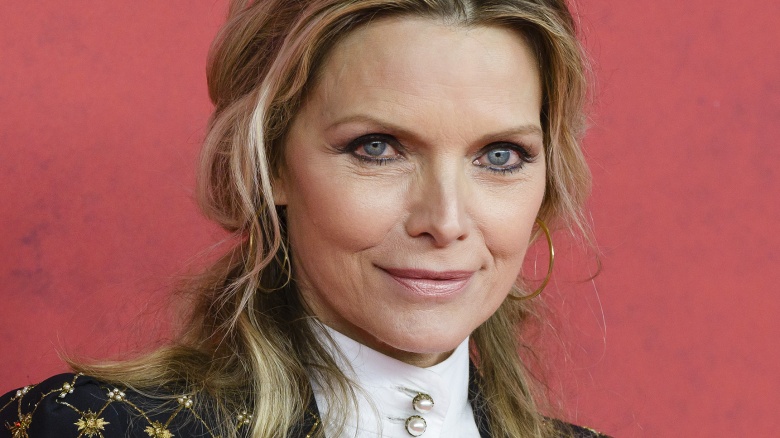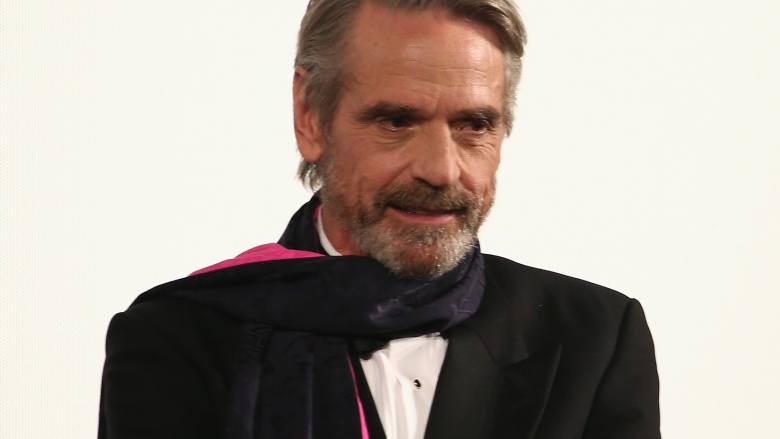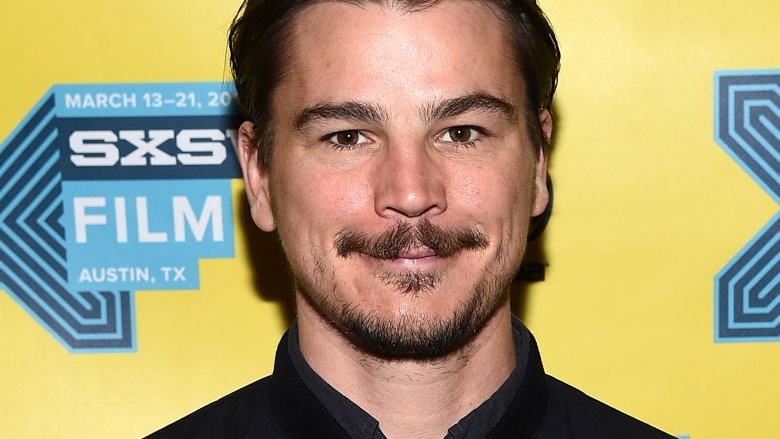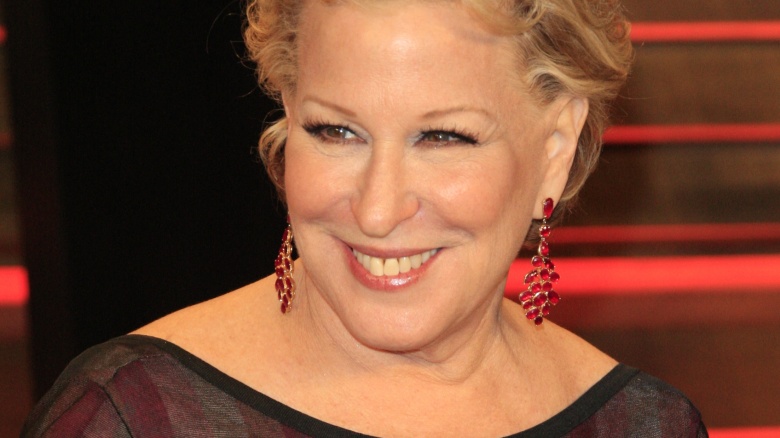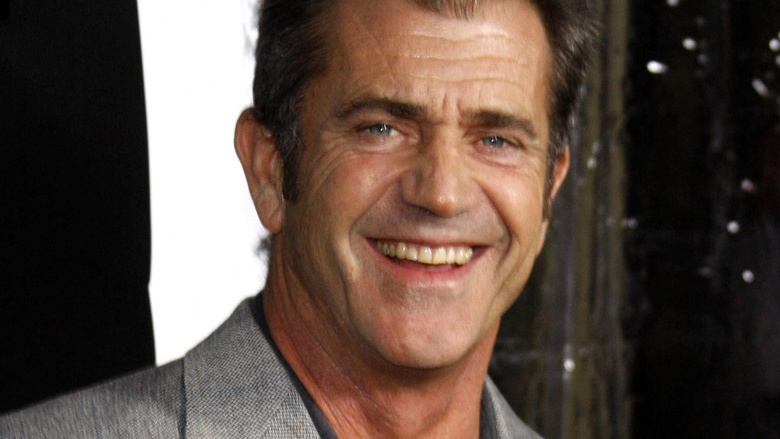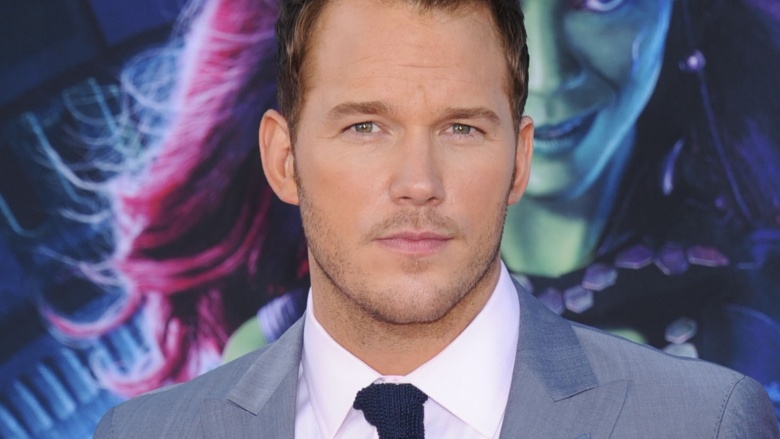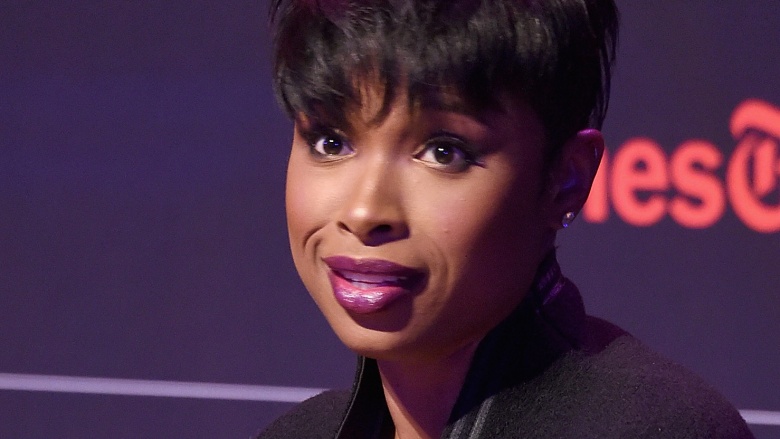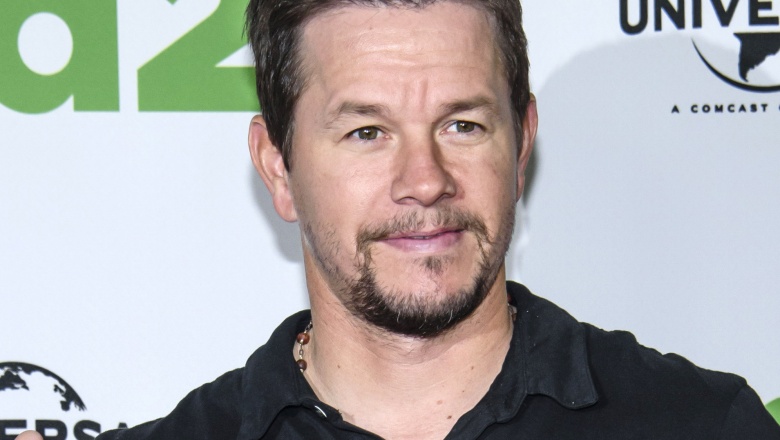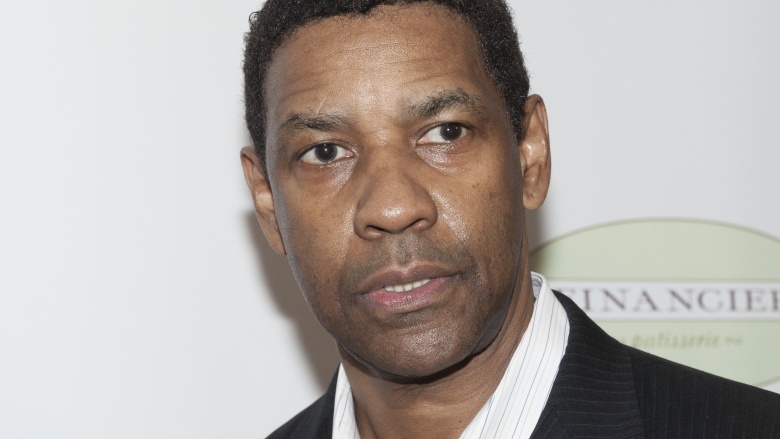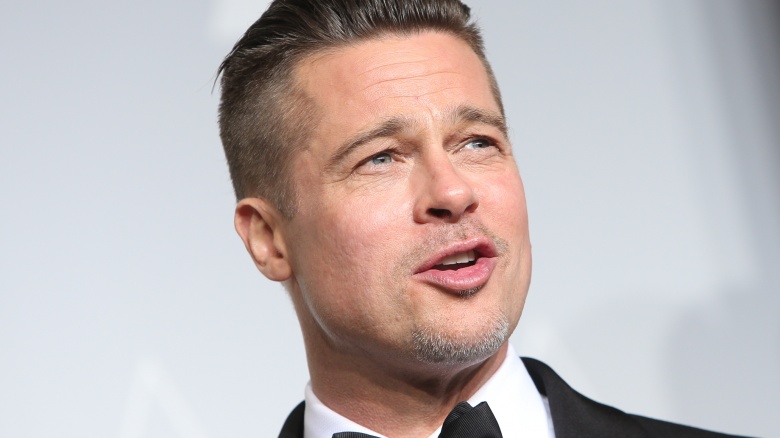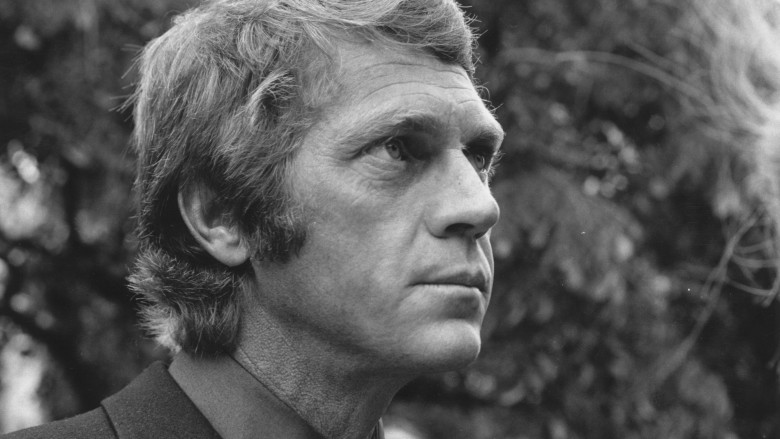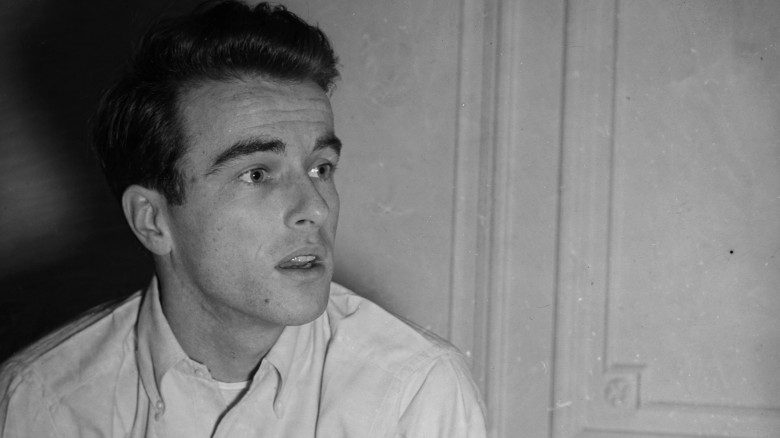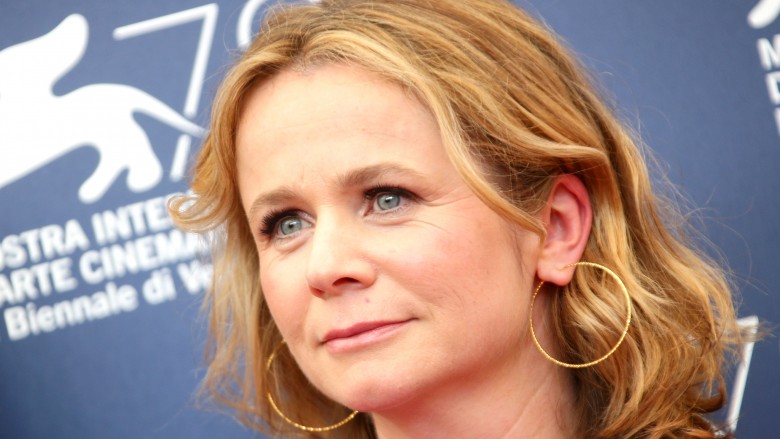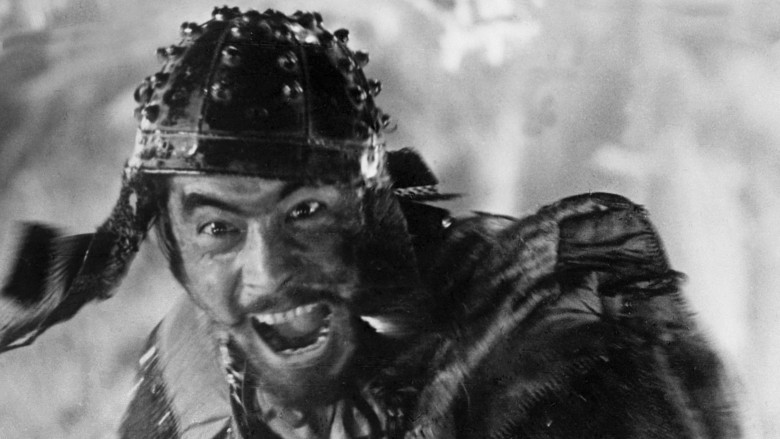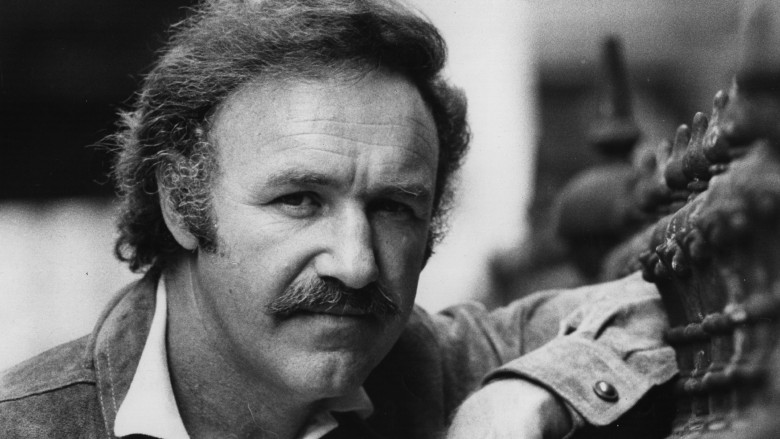Roles Actors Were Too Afraid To Take
Things normal people are afraid of: zombies, mummies, the dark, spiders. Things actors are afraid of? Taking certain roles, apparently. Sometimes actors just pass up blockbusters because, hey, they're good at pretending to be other people, not predicting the future. Whether out of a serious fear of the reaction of their fans, the overall creepiness of the movie (Silence of the Lambs, anyone?), or just of a straight fear of truly awful writing, many famous actors have turned down incredible roles for totally legitimate reasons.
Michelle Pfeiffer: Clarice Starling in Silence of the Lambs
Michelle Pfeiffer isn't afraid to admit she was too afraid to take on the subject matter of Silence of the Lambs. As Empire revealed in its look at the making of the movie, she was turned off by overwhelming darkness and violence in the script—a letdown for director Jonathan Demme, who'd worked with her previously and made Pfeiffer his first choice for the role of Clarice Starling. He went through a number of other actresses before hiring Jodie Foster. Honestly, we wouldn't want to be face-to-face with Hannibal Lecter even if we were just on a movie set, so it's easy to sympathize with Pfeiffer—and Foster's Starling is spot-on. We couldn't imagine anyone else in the role.
Jeremy Irons: Dr. Hannibal Lecter in Silence of the Lambs
Dr. Hannibal Lecter may be one of the creepiest characters in cinematic history, which is why we're not faulting Jeremy Irons for turning down the role out due to the dark plot and violence in the film—not to mention a fear of typecasting. Irons has since held his ground on his decision, telling the Daily Telegraph he was happy he turned it down after Hopkins won an Oscar for the role. Okay, fine—but Irons still went on to take on some villainous roles he's (in)famously remembered for, like Scar in The Lion King and Humbert Humbert (the original creeper) in a 1997 adaptation of Lolita.
Josh Hartnett: Superman in Superman Returns
Former heartthrob Josh Hartnett was afraid of being pigeonholed. At the ripe age of 22, he was asked to don the red cape in the 2006 film Superman Returns, but declined for fear of being labeled the Man of Steel for the rest of his career. Also in Hartnett's "thanks, but no thanks" pile: opportunities to play Batman and Spider-Man. "I've definitely said no to some of the wrong people," he later admitted. "I said no because I was tired and wanted to spend more time with my friends and family. That's frowned upon in this industry. People don't like being told no."
Bette Midler: Deloris Van Cartier/Sister Mary Clarence in Sister Act
Bette Midler was supposed to play Deloris Van Cartier/Sister Mary Clarence in Sister Act, the role made famous by Whoopi Goldberg. As she later told Metro, she turned down the opportunity because she was afraid of how her fans would react to her portrayal of a nun. "My fans don't want to see me in a wimple," she shrugged. Who wants to break the news to Midler that the character wasn't actually a nun?
Mel Gibson: Batman in Tim Burton's Batman
Mel Gibson was reportedly the studio's top choice for director Tim Burton's 1989 Batman, but he didn't think audiences would show up—and was ultimately forced to turn down the project due to other filming commitments. Given what a huge, franchise-launching hit it turned out to be, you might think Gibson has a few regrets—but if he does, he hasn't copped to them publicly. "I'm not interested in the stuff," he insisted in a 2016 interview with Deadline. "Do you know what the difference between real superheroes and comic book superheroes is? Real superheroes didn't wear spandex. So I don't know. Spandex must cost a lot."
Chris Pratt: Peter Quill in Guardians of the Galaxy
We know Chris Pratt eventually took the starring role in Guardians of the Galaxy, but before he helped save the universe as Star-Lord, he originally passed on the part. As he told Entertainment Weekly, he thought he was too fat to play a superhero and ultimately afraid of the same feelings of rejection he dealt with when he was passed over for Star Trek and Avatar. A huge fan of the action movie genre, Pratt later faced his fears and won the hearts of Guardians fans everywhere. That right there is a real-life superhero story.
Jennifer Hudson: Precious in Precious
Dreamgirls star Jennifer Hudson was offered the title role in Precious , but turned it down—a decision she initially attributed to a reluctance to gain the weight necessary for the character, but later insisted had more to do with what was on the page than what would have shown up on the scale. "I'm a firm believer that what is meant for you is meant for you," Hudson told the Huffington Post. "I did not turn the role down because of the weight situation. I just felt the character was doing things, at least in my script that I got, that were places I did not want to go and not where I needed to go."
Mark Wahlberg: Jack Twist in Brokeback Mountain
Mark Wahlberg was originally offered the role of Jack Twist in Brokeback Mountain, declining it after reading the first 15 pages of the script and letting his fear of the movie's homosexual themes outweigh the potential of the role. Wahlberg admitted he was "creeped out" by the tale of a forbidden love between two cowboys, and told director Ang Lee that while he respected his filmmaking ability, he wasn't willing to discuss the film. It's acting, Mark! Ultimately, Jake Gyllenhaal and Heath Ledger signed on—Gyllenhaal's Oscar nomination for his work in the movie must have been fun for Wahlberg to read about.
Denzel Washington: Detective David Mills in Se7en
Speaking with GQ, Washington admitted he regretted turning down the chance to star in this David Fincher classic about a serial killer using the seven deadly sins as a template. As he explained, he found the script "too dark and evil"—although now that we've all had a couple of decades to love Brad Pitt and Morgan Freeman in the movie, he feels a little better about the film. If you ever see Washington, don't forget to ask him "what's in the box."
Brad Pitt: Edwin Epps in 12 Years a Slave
12 Years a Slave is one of the most acclaimed dramas to come out of the major-studio system in recent years, but as Brad Pitt told the Mirror, he turned down the villainous role of Edwin Epps because he was afraid of what his children would think if they saw him as a slavemaster in the film. He opted for a cameo role—because, as one of the producers on the movie, you get to do things like that.
Steve McQueen: Jackie Scanlon in Sorcerer
When William Friedkin was casting The French Connection, he was blown away as soon as Roy Scheider stepped into the room. Impressed with his audition, Friedkin gave Scheider the role of undercover cop Buddy Russo; later, he also seriously considered Scheider for the part of Father Karras in The Exorcist. But Scheider wasn't always Friedkin's first pick when it came to plum parts. While the actor was eventually cast in Sorcerer—a 1977 thriller about truck drivers carrying nitroglycerine through the Chilean mountains—Friedkin originally wanted the King of Cool, Steve McQueen.
When McQueen read the Sorcerer screenplay, he said it was "the best script" he'd ever been given. He was dying to play the lead, but there was a little catch. Friedkin planned on shooting in South America, but McQueen wanted to make the movie in the U.S. Why? At the time, McQueen was married to actress Ali MacGraw, but their relationship was nearing its end. (The two divorced in 1978.) "If I go outta the country for three months, I won't have a marriage when I come back," McQueen said, but Friedkin refused to budge.
Desperate, McQueen asked, "Can you write something for [MacGraw]?" Unfortunately, Friedkin refused to create a female role and also said no when McQueen asked if his wife could be an associate producer. Years later, the director would admit he'd been "very arrogant at the time" and "didn't realize...that a close-up of Steve McQueen's face is more powerful than the biggest landscape you could put on screen." Despite the superstar's box office power, Friedkin gave the part to Scheider, but sadly, the film tanked at the box office—probably because it came out the same summer as a little film called Star Wars.
Jude Law: Superman in Superman Returns
Believe it or not, Josh Hartnett isn't the only actor who had concerns about becoming the Man of Steel. When Warren Beatty was approached to play Clark Kent for the 1978 adaptation, he turned down the part, largely because of the outfit. Wanting to see what he would look like in the iconic suit, he put on a pair of long underwear, stood in front of a mirror, and decided he wouldn't be saving Metropolis anytime soon.
Fast forward to the early 2000s, and Jude Law grappled with a similar problem. Director Bryan Singer was casting for Superman Returns and considered going with the British star, but Law wasn't sure donning the cape was a good idea. He was worried about his nationality, thinking an Englishman shouldn't play the guy who stands for the American way—and he also wasn't crazy about putting on the tights.
Hoping to sway the actor, Singer had the costume sent over, and Law tried it on for size. "I take the suit into the bathroom," he later told Stephen Colbert on The Late Show, "and I'm putting it on...and I look in the mirror, and suddenly I'm Superman." Law even started hearing the original film's John Williams theme, but everything fell apart when he imagined himself on posters sporting the blue-and-red costume. Suddenly, there was "no way" he could play the part, although he did have the satisfaction of pretending to be Superman for a few moments. And as Law put it, "That was enough."
Montgomery Clift: Joe Gillis in Sunset Boulevard
When people talk about the great Method actors, James Dean, Marlon Brando, and Montgomery Clift are often mentioned. But while Dean and Brando are still considered icons, Clift has largely been forgotten by the casual moviegoing audience, and that's pretty tragic: he turned in stellar performances in classics like Red River and I Confess, and earned Oscar nominations for his performances in The Search, A Place in the Sun, From Here to Eternity, and Judgment at Nuremberg.
But in addition to these award-worthy roles, Clift rejected several impressive parts. For example, he turned down the titular gunfighter in Shane, and screenwriter William Goldman alleges Clift passed on both East of Eden and On the Waterfront. Most interestingly, Clift turned down the male lead in Billy Wilder's black comedy Sunset Boulevard. This macabre masterpiece follows Joe Gillis, a screenwriter who gets involved with fading movie star Norma Desmond. The aging actress grows obsessed with Gillis, and tries to use his writing talents to rekindle her Hollywood career.
According to many, Clift turned down the part because it was just too close for comfort. He was reportedly a complicated person, sexually speaking, and while he preferred men, he had several close relationships with women (although people debate whether they were romantic). One of those women was Libby Holman, a torch singer and theater actress 16 years older than the 30-year-old Clift. Many people believe Clift was worried the Sunset Boulevard role would cause critics to label Holman his own personal Norma Desmond. Possibly wanting to keep her out of the gossip columns (where she was no stranger), Clift passed on the part, allowing Bill Holden to step in and earn his first Oscar nod.
Emily Watson: Amélie Poulain in Amélie
Emily Watson isn't exactly known for lighthearted movies. She burst onto the scene in 1996, starring in the controversial Breaking the Waves, landing the part after Helena Bonham Carter turned it down, allegedly due to all the sex and nudity. Since then, it's been full steam ahead into Serious City. She's played in melancholy movies like Synecdoche, New York, gritty films like The Proposition, and tearjerkers like War Horse. Even Punch-Drunk Love, ostensibly a romantic comedy, is overflowing with pathos.
In other words, Watson probably isn't the first person you'd pick for a comedy, which makes it surprising that Jean-Pierre Jeunet wanted her for Amélie. The tale of a French waitress who wants to make people happy, Amélie is loaded with so much whimsy that it makes Michel Gondry look like David Fincher. And even though Watson had recently finished working in laughfests like Angela's Ashes and Hilary and Jackie, Jeunet thought she'd be perfect for the part of Amélie Poulain. Watson, on the other hand, wasn't so sure.
The British actress wasn't worried about the comedy. Instead, she was nervous about the language barrier. "[Jeunet] wanted me to speak French," Watson told The Telegraph, "and I don't speak French." She explained she was worried about "falling flat" on her face, so went "cold feet" and said no thanks. With Watson out of the picture, Jeunet gave the role to Audrey Tautou, who he'd first seen on a poster for the movie Venus Beauty Institute. Thanks to Tautou, Amélie quickly became one of the most beloved French releases of all time, with Watson agreeing "it's a lovely film."
J.K. Simmons: a racist in O Brother, Where Art Thou?
In real life, J.K. Simmons is probably a wonderful guy with friends and family who love him. On screen, the dude is totally terrifying. Sure, he was a great dad in Juno, and we all know he has our best interests at heart when he's selling us Farmers Insurance...but come on. When people picture J.K. Simmons, they imagine him as a psychopathic inmate in Oz or a maniacal music teacher in Whiplash.
Of course, despite his commanding voice and intimidating presence, Simmons isn't always interested in playing a heavy. On at least one occasion, he was so tired of being the bad guy that he passed on a chance to work with the Coen brothers. According to the actor, he auditioned for a part in O Brother, Where Art Thou?, and while the directing duo never officially offered him a role, they were supposedly considering him for "a racist southern guy."
Unfortunately, Simmons hasn't elaborated on which part he might've played, but looking at all the bad guys in the film, it's possible he was in the running for the otherworldly Sheriff Cooley or possibly Homer Stokes, friend of the little man and Imperial Wizard of the KKK. Nevertheless, the size of the part didn't matter to Simmons. At the time, he was already playing a white supremacist (Vernon Schillinger) on TV, and as he explained, "I just thought, 'I have to get away from that character.'"
Unwilling to typecast himself as the guy who plays racists, Simmons walked away from the audition. Fortunately, the Coens seem like understanding guys, and they later cast the actor in both The Ladykillers and Burn After Reading. After all, if J.K. Simmons wanted to be in your movie, would you tell him no?
John Lithgow: Seth Brundle in The Fly
David Cronenberg's The Fly is pretty much a perfect horror movie. The effects are disgustingly awesome, Cronenberg was at the top of his directorial game, and most importantly, Jeff Goldblum and Geena Davis totally kill it as the two leads. It's hard to imagine anyone else playing their parts—especially Goldblum as Seth Brundle. But shockingly, Goldblum wasn't the only actor in consideration for this grotesque manimal. As it turns out, John Lithgow was also up for a trip through the teleportation pods.
Lithgow is no stranger to playing monsters. He was the baddie in films like Blow Out and Cliffhanger, and according to the actor himself, he was even considered for the part of psycho extraordinaire Hannibal Lecter. But despite his penchant for playing scary characters, Lithgow didn't have the stomach to morph into a man-sized fly.
In an interview with In Magazine, the actor admitted his agent wanted him to play Brundle, but he just wasn't interested. Not only was he physically tired from a previous film, but he thought The Fly was an "icky story," and he "didn't want to play something so grotesque." And if the guy who played the Trinity Killer thought a movie was too gross, then you should probably be afraid of watching that film. Be very afraid.
Will Ferrell: Ronald Reagan in Reagan
Generally speaking, when an actor turns down a role, the movie still gets made. But that wasn't the case when everybody's favorite funnyman, Will Ferrell, decided he wasn't cut out to play Ronald Reagan. The whole incident started after writer Mike Rosolio penned a satirical script called, you guessed it, Reagan. In this unique take on White House history, the 40th commander-in-chief is suffering from Alzheimer's during his second term, and one intern is given the job of tricking Reagan into thinking he's an actor playing the president in a film.
Yeah, it's a rather twisted plot, but the script landed on the much-respected Black List before making its way to Gary Sanchez Productions, a studio run by Ferrell and writer-director Adam McKay. As McKay explained it, Reagan was "just one of 30 projects Will was looking at," but when word leaked out that the comedian was considering playing the part of the dementia-stricken president, the internet went absolutely insane.
In addition to the full-blown fury of Republicans, the movie also drew criticism from the Reagan family, who claimed the film was offensive to people suffering from Alzheimer's and their loved ones. Things got so intense that McKay claimed people were calling the Gary Sanchez offices and leaving threatening voicemails. Soon, anger at the project reached such a fever pitch that Ferrell essentially killed the film by announcing he was no longer interested in the part.
Toshiro Mifune: Obi-Wan Kinobi in Star Wars
By now, everybody knows the original Star Wars was a brilliant mash-up of George Lucas's favorite movies. Throw in some Flash Gordon, mix in a bit of World War II footage, add a dash of The Searchers, and presto, you've got A New Hope. But perhaps the biggest influence on Star Wars was the films of Akira Kurosawa.
The Japanese filmmaker behind classics like Rashomon and Seven Samurai, Kurosawa also directed The Hidden Fortress, an adventure film that directly inspired the plot of Lucas's space opera. And let's not forget Yojimbo, which indirectly led to a pretty iconic lightsaber scene. Lucas was so enamored by these samurai films that he lifted the name "Jedi" from the term for Japanese period dramas: jidaigeki.
Of course, you can't have a Kurosawa film without Toshiro Mifune. The Japanese superstar appeared in 16 Kurosawa films, and he made such an impression on Lucas that the director wanted him to play Obi-Wan Kenobi. While it would've definitely changed the feel of the character, there's no denying Mifune would've made an excellent Jedi knight. So why did the actor pass on playing the galaxy's greatest swordsman?
According to his daughter, Mifune was worried the film "would cheapen the image of the samurai." As she further explained, "At the time, sci-fi movies still looked quite cheap as the effects were not advanced, and he had a lot of samurai pride." So not wanting to sully the bushido code, Mifune waved his hand and told Lucas to move along.
(It should be noted that Mifune's daughter also claims Lucas offered him the part of Darth Vader, but the actor allegedly turned that part down, too. If that's true, his samurai pride cost him a pretty hefty paycheck.)
Chris Evans: Captain America in the MCU
At this point, it's impossible to imagine anyone other than Chris Evans playing Captain America. Sure, John Krasinski would've been an interesting choice, but really, Evans absolutely embodies Cap's innate goodness, nobility, and heroism. Plus, he's got perfect teeth. It's really a case of having just the right actor in just the right role, and that makes it all the more shocking when you realize Evans initially turned down the Marvel super serum.
On Jimmy Kimmel Live!, Evans admitted, "I was scared because at first it was a nine-picture contract, and there are parts of me that have a little bit of social anxiety with this industry." He further elaborated that, "When you have a giant contract, if all of a sudden you're not responding well, too bad, you gotta suit up again. That was scary."
In other words, just like Steve Rogers, Evans didn't feel comfortable signing a paper that would strip away his freedom, so he turned Marvel down...twice. As he explained to The Scotsman, Evans enjoyed "doing smaller films, having my anonymity, and staying under the radar." But eventually, the star-spangled actor realized he was "saying no out of fear," and he finally picked up the vibranium shield after realizing that "whatever you're scared of, push yourself into." Hey, that sounds like something Captain America might say.
Gene Hackman and Sean Connery: Hannibal Lecter in Silence of the Lambs
We've already learned that Jodie Foster wasn't the original pick for Silence of the Lambs' Clarice Starling, but Michelle Pfeiffer wasn't the only actor who was troubled by the movie's dark side. The first celebrity to turn down a role was the legendary Gene Hackman. The star of films like The French Connection and The Conversation, Hackman was looking to become a director, and when he read Thomas Harris's novel, Hackman knew this was the project he wanted to make. "It's one of the most cinematic books I've ever read," he explained. "As I read it, the movie was clicking in my mind."
In addition to directing, Hackman also considered starring in the film, although he wasn't sure if he wanted the juicy role of Hannibal Lecter or the smaller part of FBI agent Jack Crawford. But even though he owned the book rights, Hackman eventually pulled out of the project. Some believed he grew troubled with the story's darkness, but Silence of the Lambs director Jonathan Demme and talent agent Robert Bookman tell a different story. In an interview with Deadline, they explained Hackman's daughter read the book and was so grossed out that she told her father he wasn't making this movie.
"God bless Gene Hackman's daughter, if that's true," Demme said, "and that's what I've always heard. God bless her."
In the same Deadline article, Demme revealed that Anthony Hopkins had some stiff competition for the part of everybody's favorite sophisticated cannibal. According to Demme, pretty much every actor in Hollywood wanted the part, "from Dustin Hoffman to Morgan Freeman." However, the director knew Hopkins was the man for the job...or maybe Sean Connery. Demme believed the Scottish superstar had the "fierce intelligence" and "serious physicality" to pull off the character, but after reading the script, Connery turned it down because "it was disgusting," and he "wouldn't dream of playing the part."
Valid criticism, perhaps, but we like to imagine Connery turned it down because he prefers martinis to Chianti.

